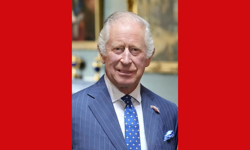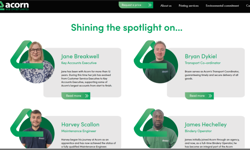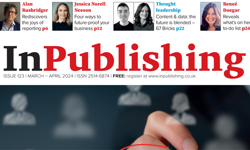"We’re completely platform-agnostic. If someone demands information a certain way, we’ll do it." So says Tim Weller, the larger than life group chief executive of Incisive Media. Weller co-launched the business-to-business information company in 1994. Back then, it had just 13 staff working towards the launch of its flagship title, Investment Week, in 1995. Today, thanks to organic growth and an aggressive acquisitions strategy, it employs over 2,000 people in 27 offices around the world and has a portfolio which bursts with publications, events, websites, mobile and TV. Its brands include vnunet.com, Accountancy Age, Legal Week and Risk; its target audiences are primary professionals in the financial services, legal and IT sectors.
Speaking from the company’s substantial headquarters on London’s Haymarket, Weller reflects that Incisive Media’s ‘buyer meets seller’ business model – which it gravitated towards through "luck rather than judgment" - was key to its success from the start. Many more B2B players have since adopted such a model, he claims. Now, having established and expanded the company he helped set up, Weller doesn’t intend to rest on his laurels. Next on the company’s to-do list is entering the workflow of its audiences via continuous professional development programmes and certified training. Here, predicts Weller, is a future revenue stream that will help the company maintain its steep growth trajectory.
Given its stellar financial performance to date, it would be foolish not to heed Weller’s words. Incisive Media was valued at £75m when it floated in 2000, a figure which ballooned to £275m in 2006. Following a public-to-private management buyout backed by Apax in December 2006, the company embarked on an acquisitions spree which saw it triple in size in six months.
Digital spin offs
And while some publishers were wringing their hands over digital technology in the late 1990s, Incisive Media was busy launching a website for Investment Week which was already turning in a profit. Today, the company has its own production studio where it creates streaming content, such as a weekly audio conference for Investment Week which is moderated by the editor. It also delivers data to mobile platforms, and is embracing the potential of Web 2.0 technology. Weller marvels at how blogs and user-generated content can help to prolong the life of a news story, keeping it fresh for days on end. "A story can break online, be followed up in print, and subsequently discussed and analysed online; it’s not just a print property that gets put online anymore."
Incisive Media has been quick to spot the revenue potential of new technologies too. In fact, says Weller, B2B publishers have been much more proficient in monetising digital platforms than their counterparts in consumer media. "Most B2B publishers are making money online because they understand how to monetise their content. The buyer meets seller business model helps us here: most of our sites are narrow cast, so the content is very focused. Consumer publishers find it difficult to understand how you can make money."
Not all Incisive Media’s online content is paid-for, however. "We have different models across the business. There are certain end markets where we won’t get the reader to pay because they receive so much information for free. More community-led content is charged at a normal rate and for some we charge a premium. For instance, in the risk management space, our prices are high because we deliver premium academic, learning-based content." Incisive Media also works with advertisers to deliver content. JP Morgan Asset Management, for instance, sponsors the Adviser Academy, an online resource which provides accredited educational material for independent financial advisors via their main organisational body, the IFA.
What about print?
Despite its increasing commitment to delivering more content digitally, Weller insists that the company is not "anti-print". With just under 40% of its revenues from printed products, Incisive Media’s strategy so far has been to launch a print product and then surround it with online properties, events and other brand extensions. Significantly, however, some newer, high-profile brands within the Incisive portfolio don’t have a print element. The internet news feeds Clickz and Search Engine Watch are web-based and are hosting 11 events between them in 2008. Having built up substantial brand equity on such products without a print element, Weller is sanguine about the future of ink on paper: "That 40% figure will probably drop as we become more successful online." Nevertheless, this comment is tempered with an acknowledgement of print’s role within Incisive. "Most of our magazines are subscription-led, and we like that," he smiles.
The attraction of VNU
Over the past 14 years, Incisive Media has identified and served niche markets, opting to specialise in products which target tightly-defined audiences. Recent acquisitions, including ALM in the US, whose extensive portfolio includes American Lawyer and the New York Law Journal, perpetuate this strategy. Yet the company inherited more general interest titles such as Computing and ComputerActive through its purchase of VNU Business Publications in 2007. It also landed the vnunet.com technology portal which, says Weller, was the main attraction. "The principal reason that we acquired VNU was because we wanted a well-developed content management system which works intelligently. If someone comes onto the vnunet homepage, it identifies who they are and offers seven relevant reasons why they should stick to this website rather than go somewhere else."
For Weller, whose career began at VNU, acquiring the company felt "quite odd. There were familiar faces and people I had known who still worked there."
Banging the B2B drum
Weller is a loquacious and passionate spokesperson for the UK’s business information and professional media industry which, as he readily reveals, is a £22.8 billion industry, according to PPA estimates based on GfK NOP Research. He is the chairman of PPA Business and Professional, was awarded the Marcus Morris Award – a top honour in the magazine industry – in 2005 and won the Business and Professional Publisher of the year in 1997 and 1998. He also scooped the award for the Ernst & Young Business Services Entrepreneur of the Year – London in 2001.
He believes that maintaining an entrepreneurial spirit is vital to continued success. "Creating a culture where people aren’t frightened to challenge what they do and to change the way they do things is absolutely essential," he says excitedly. "If we don’t ask ourselves whether we’re doing things correctly, we’ll never move forwards."
Incisive has managed to keep hold of this flexible attitude despite growing at breakneck speed over the last 14 years. But there’s still work to be done. When Weller’s asked whether B2B publishers are fully conversant with data-management, he shakes his head and admits that this is an area where his company needs to improve. "Collecting the data is all well and good; it then becomes all about how it’s used. We’re beginning to learn that it’s actually not that frightening."
He adds: "We have four parts of our business where we create, build and sell highly-priced data, and that demands very different skills because selling a £15,000 desktop is different to selling a £300 print property. It requires individuals to understand the product and demonstrate it, as well as customer service, support and training."
Changing face of B2B
There is greater streamlining within the organisation which affords more opportunities to profit from areas such as lead-generation. Mortgage providers, for instance, pay Incisive Media per lead gleaned via data capture through a portfolio of mortgage websites. This more transparent business model - offering very clear return on investment benefits - suggests a more modern partnership approach which doesn’t hinge on traditional advertising formats. In fact, Weller reveals that in the coming years, "we’ll be less reliant on ad revenue - that’s an objective of ours - because the market doesn’t like advertising-led businesses." In future years, there will be more emphasis on data capture, lead generation and ‘owning’ desktops in the professional service industries where Incisive products currently circulate. Post magazine, points out Weller, currently has 6,500 readers out of the 300,000 which work in the UK insurance industry. Weller says: "I’d like to see Post sit on the desktop of every single person in the insurance industry and deliver content that is useful. I want to own that desktop."
Currently, Incisive Media’s business is split between the UK (45%), the US (45%) and Asia (10%), although Weller thinks that the company’s Asian footprint will grow in the years to come. "We are getting fantastic growth in our private equity portfolio in the emerging markets of Asia and the Middle East," he says.
Onwards and upwards
As well as further geographical expansion, Weller is clear about the company’s strategic objective: "Going forwards, we want to become so influential in certain end markets that people can’t operate unless they have our products; just like Bloomberg in the financial services industry." He adds that he wants Incisive Media to be in the FTSE 100 of UK businesses - if not the FTSE 50 - in ten years’ time.
It’s not just his own company’s future that he’s buoyant about; he’s also extremely upbeat about the future of B2B as a UK industry. "B2B is fantastic because we’re very good at adapting and monetising other forms of communication. We’re very creative, we know our communities and serve them well."
He adds: "Now, through the PPA, we are beginning to knock on the door of the government to get them to recognise how sizeable and important this market is. The UK leads world business information with companies like Reed, United Business Media, ourselves and Informa." He also makes special mention of the 83% of B2B publishers that employ under 50 people, admiring the smaller, more entrepreneurial nature of such companies.
Weller himself is still an entrepreneur at heart. He says: "Entrepreneurs are never happy with the status quo; they’re always looking for a change. As a business, that’s the way we manage ourselves. We’re creative and we do lots of good stuff, some of it works, some of it doesn’t. If it doesn’t work, we just move on."
With that, Weller leaves for a meeting with an American banker. It’s hard to know exactly what Incisive Media will look like in the years to come, but if Weller has anything to do with it, it certainly won’t be standing still for long.
FEATURE
Tim Weller interview
Over the last ten years or so, Tim Weller has presided over the launch and subsequent rapid expansion of B2B information provider Incisive Media. A passionate advocate for B2B, Tim tells Lucy Aitken why it is such a vibrant sector and outlines his plans for the future.










